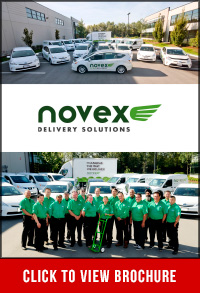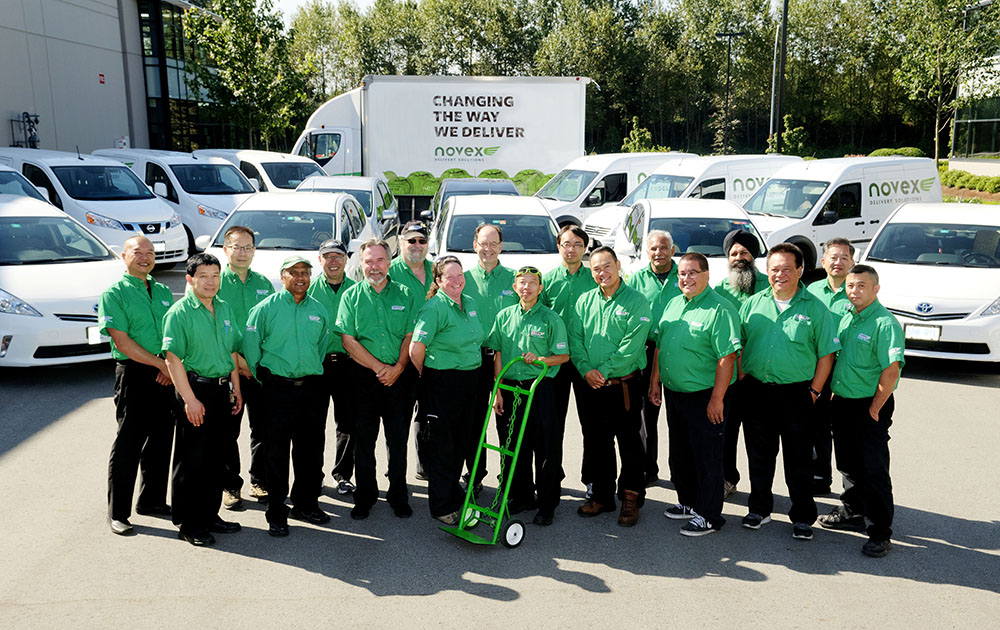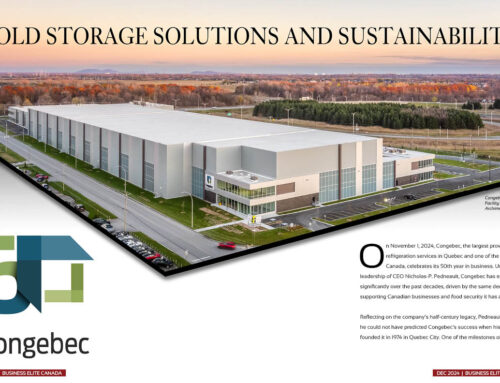Setting green standards for Canada’s transportation industry
By Rajitha Sivakumaran
 Climate change and greenhouse gas emissions have been such dominating topics that every motorist in Canada knows they are contributing to this worldwide occurrence each time they start an engine. Some have switched to electric vehicles; others are contributing by commuting or using the increasingly popular bike shares. However, most of the vehicles seen are emitting a number of gases into the atmosphere like carbon dioxide (CO2). As the main gas that is instigating climate change, higher than normal levels of CO2 are responsible for trapping heat, becoming an issue with worldwide repercussions.
Climate change and greenhouse gas emissions have been such dominating topics that every motorist in Canada knows they are contributing to this worldwide occurrence each time they start an engine. Some have switched to electric vehicles; others are contributing by commuting or using the increasingly popular bike shares. However, most of the vehicles seen are emitting a number of gases into the atmosphere like carbon dioxide (CO2). As the main gas that is instigating climate change, higher than normal levels of CO2 are responsible for trapping heat, becoming an issue with worldwide repercussions.
In addition to the average motorist, transportation companies also have an environmental responsibility to go green. One Richmond-based delivery company in particular has been leading the industry towards greener standards since 2003. Novex Delivery Solutions, with 30 years of service under its belt, is one of the largest delivery service providers in the Vancouver and Lower Mainland area. Its fleet consists of nearly 100 vehicles from bicycles to freight trucks.
What sets Novex apart from others in the transportation sector? The folks at Novex are not only aware of the environmental problems their line of work imposes, but they’re actively doing something about it.
“Novex has always been an early adopter of technology and new environmental initiatives,” said John Coupar, the company’s newly appointed president. Novex bought its first hybrid vehicles back in 2003, an initiative led by its CEO, Robert Safrata, who is very passionate about the environment. “It was one of the key reasons I actually joined the company. It fit well with my feelings about how important it is to look after the environment. Green is a very important part of my life,” Coupar added.
Novex is also a certified B Corporation company, one of the 1,800 companies from 50 countries following the ‘business as a force for good’ mandate. Although they have not completely eliminated carbon emissions from their fleet, Novex has done the next best thing. Not only have they reduced their greenhouse gas emissions by 40 per cent, the company vows to have a 100 per cent ultra-low emission vehicle fleet by the end of this year.
Carbon offset programs in Canada are allowing businesses to become carbon neutral, meaning that these companies are removing the same amount of CO2 they are putting into the environment. The idea stems from the fact that climate change is a global problem; greenhouse gas emissions in one area can be neutralized by green initiatives, like wind farms, in other areas. Purchasing carbon credits or offsets from these sources allow companies to simultaneously offset their own emissions while supporting green technology. In 2008, Novex began purchasing carbon offsets and became the only local carbon neutral courier. Even at the office, staff have undertaken big steps in reducing their impact, from eliminating the use of natural gas and composting food scraps to decreasing both electricity and paper use by 35 and 75 per cent, respectively.
A triple bottom line
Novex prides itself on having a triple bottom line, which includes social, economic and environmental aspects. Involved in a number of charitable organizations, staff are encouraged to participate in the local community. Although the company serves 3,700 customers in Vancouver, many of which are big names in their own industries, Novex is committed to small companies too, who especially depend on reliable delivery services during their time of growth.
As for its environmental targets, the company has already proven itself to be a sustainable organization. The next step for Novex is to spice up their efforts with some fancy technology.
“We’re looking at leading electric vehicle contenders and how we might be able to integrate them into our fleet,” Coupar said.
Right now, Novex is testing an electric vehicle from BYD, a Chinese company that has already put 10,000 electric buses on the streets of China. Novex is toying with the E6, a small front-wheel drive, similar in build to a sport utility vehicle. Novex has also signed an agreement with General Motors to get the all-electric Chevy Bolt EV when it arrives in Vancouver. The company is especially excited for the launch of Tesla’s Model 3, which boasts an impressive 345 kilometre range per charge.
Although bicycle couriers are used for downtown Vancouver, Novex is looking at increasing efficiency by using electric bikes. “Recently, we tested electric bikes with BMW. We are now seeing bicycles with small trailers on them and it will simply make things easier if there’s electrical assistance,” Coupar said, adding that although electric vehicles tend to be more expensive, the cost over the life cycle of the vehicle is considerably lower since fuel costs are effectively reduced. So going electric is a feasible option for any company looking to make an environmental difference.
“I think the move to electric will be huge. We think that this is going to happen fairly quickly. We’re in the testing phase right now, but it is clear that that is the direction in which the transportation industry is going to move,” Coupar said.
The world is changing very quickly. Innovation has reached a point where self-driving cars may become the preferred mode of transportation in the future. This is one reason why Novex has imbedded itself in the rapidly expanding, highly technological world of transportation.
“We will continue to be a leader in green transportation,” Coupar said. “We would like other companies to follow us. We’d like to see more companies be greener and be very conscious of the environment, and be sustainable in everything that they do because we all can do a small part together. More and more companies are looking to make a positive impact and change their business practices. By partnering with us, that is an opportunity for them and an opportunity for us to do better.”
www.novex.ca






